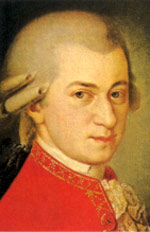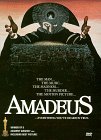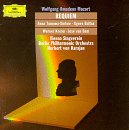
624 pages
446 illustrations


Amadeus Mozart operas free music downloads concerts

|
The life of Mozart was a tragic one. From that tragedy comes a wonderful film filled with glorious music, superb performances, gorgeous settings and scenery. The story involves a also-ran court composer, Antonio Salieri (F. Murray Abraham in an Oscar Winning Performance) who harbors extreme jealousy of the womanizing, crass, rude yet musically gifted Wolfgang Amadeus Mozart (Tom Hulce). Through their performances and the clever words, the films theme's of trust and deception ring true. |



|
view operas online! |
||
|
Zu Hilfe! (Tamino, the three ladies
|
|||
Mozart - the absolute wonder of the world
Wolfgang Amadeus Mozart was born into a world filled with music on January 27, 1756 in the town of Salzburg, Austria. His father, Leopold Mozart, was a professional musician and scholar who not only taught his children music, but assumed responsibility for all of their education.
Leopold Mozart saw the talents of his children as a way to gain fame and fortune for the family. At the age of six, Wolfgang set out with his family on a musical tour of Europe. Wolfgang and Nannerl became known as the "Wonder Children" and were in great demand, amazing and entertaining all the courts of Europe.
Wolfgang was very charming as a youngster. While in Vienna at the home of Empress Maria Theresa, he slipped and fell upon a polished floor. Maria Antoinette, who would later become the Queen of France, came to his rescue. Wolfgang was so delighted that he pronounced, "Oh, how pretty you are! When I grow up, I will marry you."
As the novelty of the children declined, Leopold Mozart was forced to discontinue the tours. The many years of travel over unpaved roads in horse-drawn carriages had taken their toll on Wolfgang's health. A severe case of smallpox nearly killed him and forever affected his health. In later years, Mozart only traveled out of financial need. This, unfortunately, proved to be more often than he had hoped. |
|||
| top
|
|||


 View opera MAGIC FLUTE
View opera MAGIC FLUTE


